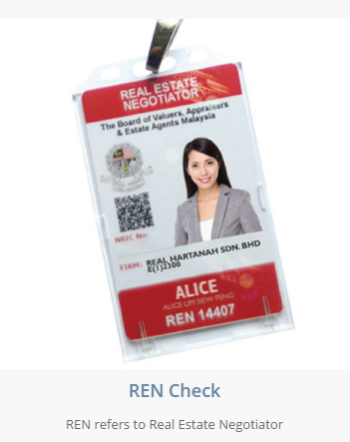The 33 Essential Real Estate Jargon For Selling A House In Malaysia
Real estate jargon can be a bit of a whirlwind at times. There’s a whole world stretching from basic real estate terms to complex real estate terminology to understand.
When you’re trying to sell a house, you don’t want to get bogged down in estate agent jargon. You just want to get the process done and enjoy the rewards!
We're here to help. We’ve put together an extensive list (arranged alphabetically) of everything from essential complex legal wording, to basic real estate terms to help with the process for when you’re selling a house.
1) Appraisal
Appraisal is an alternative term used to refer to property valuation. It is the process of evaluating a property or piece of land to determine its worth, and the price which might be considered fair and accurate to place it on the market for sale.
2) Asking Price
Asking price is the term used to refer to the price at which a property is listed for sale. It is the defined price which the seller is providing to buyers to indicate the sum of money they wish to sell their house for.
This does not have to directly reflect the market value or appraisal price, as it is ultimately down to the decision of the owner on what price they wish to set for their property.
3) Bumi lot
A Bumi lot is one of the four main types of land for sale in Malaysia. Houses built in these areas may be sold or leased only to bumiputera citizens. An application can be made by an owner to release a property from these restrictions in order to place it for sale, although it is challenging to succeed.
4) Conveyancing
Conveyancing is the term used to refer to the end-to-end legal process of transferring ownership of a property from one owner to another. In simple terms, it describes the process of a current property owner selling their property and transferring ownership to the buyer.
5) Covenants
A covenant is a condition or agreement recorded in a property deed such as an SPA, which commits the owner to certain conditions. This could include elements such as a restriction on how and when you can sell the property.
6) Deed of Assignment (DOA)
The Deed of Assignment (DOA) is a document used to transfer ownership of property between parties. It confirms that the assignor (who currently owns the property) is transferring ownership to the assignee (who is acquiring the property).
This legal document of transfer is used in cases where a Memorandum of Transfer (MOT) cannot be used, due to the current status of the property title.
7) Down Payment
A down payment is a lump sum payment made upfront to a seller during the purchase of a property. The minimum payment is 10% of the total purchase price, although purchasers can pay more than that figure if agreed.
The first part of this may be paid as a 2% earnest deposit (see below!), which contributes to the mandatory 10% minimum downpayment.
8) Earnest Deposit
An earnest deposit is a sort of downpayment that's made on purchase of a property to demonstrate your intention. It's a non-refundable payment of typically 1%-2% of the total purchase price, which is designed to show you are sincere about a property purchase
Usually paid in conjunction with submission of a Letter of Offer. Where possible, this should be held by a trusted third-party in anticipation of the house purchase.
9) Encumbrances
Encumbrances are conditions attached to a registered property or land title, which reference burdens of interest, rights, or claims that apply to the property.
The most common form of encumbrance is a home loan noting the bank's interest in a property, but it can include elements such as deed restrictions, border limits, or rights of access.
10) External Appraisal Service/Third Party Appraisal Agent
External appraisal services or third-party appraisal agents refer to the act of engaging an independent property appraiser to value your property.
This can provide a professional view of the true market value of your property, or a second opinion on the value of your property to further inform the asking price.
11) Fixtures and Fittings
Fixtures and fittings are the movable objects often defined under a Sale and Purchase Agreement, that may or may not be removed/included at the time of a property sale. They include elements such as the fridge and freezer, light fixtures, curtains etc.
12) Guarantor
A guarantor is a named party on a loan agreement, who acts as a guarantee of payment if the primary party fails to meet their financial obligations. They agree to be responsible for meeting the payment terms in the event of a default by the primary party.
13) Individual Title
An Individual Title is a title deed document issued for property with a single owner of a whole piece of land, with no shared ownership responsibilities. This typically covers landed properties such as semi-detached houses, terraced houses, and bungalows.
14) Joint Ownership
Joint ownership is where two or more individuals are named as co-owners on the title of a property. It is often accompanied by a joint home loan application.
This means that approval from both parties is required for a sale. Joint ownership is also sometimes called ‘co-ownership’.
15) Land Title
A Land Title is a legal document which defines ownership of a particular parcel or area of land. It is an overarching term which covers Individual Title, Strata Title etc. A copy of all land titles are kept by the Land Office of the relevant state authority.
16) Legal fees
Legal fees in the property market is a term which refers to all mandatory payments to legal professionals for legal assistance in the purchase or sale of property. These are legislated by law, and are clearly defined costs as dictated by the Solicitor’s Remuneration Order.
17) Letter of Offer/Intent to Purchase
A Letter of Offer is a written commitment by a prospective buyer to an owner or developer of a property, stating an intention to purchase that property. It is usually accompanied with a 1%-2% earnest deposit. It can sometimes be called a Letter of Intent to Purchase.
18) Loan Agreement
The Loan Agreement is the official document between a bank or financial institution (lender) and the home buyer (lendee), defining the terms and conditions of a home loan.
It will include elements such as total loan amount, term of loan, repayment conditions, and named individuals responsible for making payment.
19) Lock-in Period
The lock-in-period is a defined period that can be found in the home loan agreement. This is where, after the purchase of a property, the owner is prohibited from (or can be penalised for) selling the property.
Home loans often define a financial penalty for the lock-in period, where sellers must pay a penalty fee based on the agreement. Some special property types such as PR1MA property exclusively prohibit sale within a set time period.
20) Malay Reserved Land
Malay Reserved Land is one of the four main types of land for sale in Malaysia. This type of land may only be sold or rented to Malay Muslims.
21) Market Value
Market value is a term used to describe the fair price of a property based on the current market conditions as assessed by a property valuation. It is a measure of the expected price a particular property would transact for, between a willing seller and willing buyer.
This assessment takes into account elements such as the type of property, the location, as well as market conditions such as supply and demand, and even the state of the economy. It is influenced by the wide range of these property market factors.
22) Master Title
The Master Title is a property title issued during the construction and development phase of a property development.
Issued after a developer has been granted permission to develop land, and covers ownership of the entire parcel of land under development. It also grants the right to sell off individual parcels of this land under a Strata Title or Individual Title.
23) Memorandum of Transfer (MOT)
The Memorandum of Transfer is a legal document which defines the transfer of ownership of a property. The signing of the MOT is the legal confirmation of transfer of ownership, and generally forms the final step of the transfer process.
24) Property Valuation
Property valuation describes the method of assessing the fair sale price for a property by a skilled real estate professional known as an appraiser or valuer. This can be engaged by a seller, independently, to professionally assess the selling price of a house.
A property valuation is always done as part of the home loan process, where a bank-appointed appraiser will undertake their own property valuation.
25) Real Estate Agent (REA)
A Real Estate Agent (REA) is a qualified agent who is licensed to operate in Malaysia’s real estate industry, having completed a two-year course and attained a Diploma in Estate Agency from the Board of Valuers, Appraisers and Estate Agents Malaysia (BOVAEA).
They will then complete their qualification through a two-year practical training under an existing REA. A REA is legally allowed to open their own real estate agency, and employ up to 50 RENs.
26) Real Estate Negotiator (REN)
A Real Estate Negotiator (REN) is a property market professional with accreditation that enables them to work in Malaysia’s property industry.
They must attend a two-day course known as the Negotiators Certificate, and are then qualified to be registered under BOVAEA and find employment under a licensed REA.








 PropertyGuru TipA valuation is usually carried out by a firm recognised by the bank you’re taking a loan from. It takes into account the recently transacted prices from the government’s Valuations and Property Services Department (JPPH).
PropertyGuru TipA valuation is usually carried out by a firm recognised by the bank you’re taking a loan from. It takes into account the recently transacted prices from the government’s Valuations and Property Services Department (JPPH).








